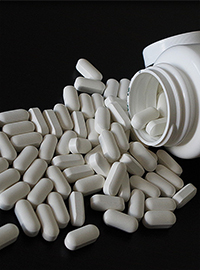| What the Politicians Won't Say About Drugs |
 |
|
By Betsy McCaughey
Wednesday, April 05 2017 |
The Trump administration is launching a campaign against the heroin and pain pill epidemic, which causes a staggering 52,000 overdose deaths a year. And two weeks ago, New York's Mayor Bill De Blasio announced stepped up efforts to halt the scourge. Will they succeed? Only if they break with the conventional wisdom that labels addiction a "disease." That's how New Jersey Governor Chris Christie, who was selected to head the national campaign, describes addiction. It's not that simple. To save lives and get better results for the $50 billion-plus tax dollars already spent yearly on this problem, the politically correct myths about addiction need a clearheaded reassessment. Myth 1: Drug addiction is a chronic illness like Parkinson's. Actually, addiction is a learned behavior for coping with stress, whether it's economic hopelessness or family problems. It can be unlearned, says Harvard Professor Gene Heyman, adding, "addicts can choose to stop using drugs." They do it once the "penalties of excessive use become overwhelming," such as seeing their spouse walk out or losing custody of their children. The decision to quit is more important than what kind of treatment is available, Heyman finds, and many addicts quit without any treatment. Similarly Columbia professor Carl Hart finds no evidence "that addiction is a disease of the brain" like Huntington's or Parkinson's. The "diseased brain" model diminishes the individual's capacity to choose whether or not to use drugs. Some people have a predisposition to addiction, but they can decide not to touch drugs. Unlike deciding not to get Parkinson's disease. Myth 2: Drug addicts can't stay clean. Criminal justice innovators are proving that's not entirely true. In special "drug courts" throughout the nation, defendants get the option to stay clean to avoid jail time. Ordering defendants to remain drug-free would be irrational if they couldn't do it. Some succeed. And the payoff for them is huge. Nationwide, 75 percent of drug court graduates remain arrest-free for at least two years. But never mind the data. A Massachusetts criminal defense lawyer recently argued that her client, who tested positive for drugs while on probation, has a constitutional right to stay out of jail because of her "addiction disorder." That enabling mentality will lead to more users and overdose deaths. Myth 3: Don't hurt drug addicts' feelings — it might discourage them from seeking treatment. But heroin use has become more prevalent across all ages, races, genders, income brackets and regions, according to Columbia University's Silvia Martins. The most tragic result is the soaring number of babies born to drug-addicted mothers — up 300 percent since 2000. Hospitals recruit volunteers to cuddle the newborns while they are going through painful withdrawal. "Sometimes the moms feel stigmatized," one volunteer said. "They feel the nurses are judging them." Perhaps that's not so bad. Christie says addiction "isn't a moral issue," but as a society we have to send a message that trying drugs is a wrong turn, especially for women who are pregnant. Myth 4: The more treatment the better. That's what the treatment industry will tell you. It's a $35-billion-a-year industry, with ever more drug-related deaths to show for it. Investors are eagerly putting up money for more rehab centers. Call it the drug treatment "gold rush." Families exhaust their savings sending a loved one for treatment, though the success rate is estimated to be a dismal 30 percent. And taxpayers foot the bill for Medicaid-eligible addicts to check into these facilities repeatedly. But until an addict decides to quit, more rehab beds alone won't solve the problem. Under the Affordable Care Act's Medicaid expansion, newly released convicts gained drug treatment coverage for the first time. But few took advantage of it. According to a 2016 Surgeon General's Report on Alcohol, Drugs, and Health, the largest reason that addicts don't seek treatment is that they're "not ready to stop using." In the end, it's more about a decision than a disease. That's the part pandering politicians won't tell you. ---------------------------------------------------------------------------------------------------------------------------------------- Betsy McCaughey is chairman of the Committee to Reduce Infection Deaths. |
Related Articles : |
























